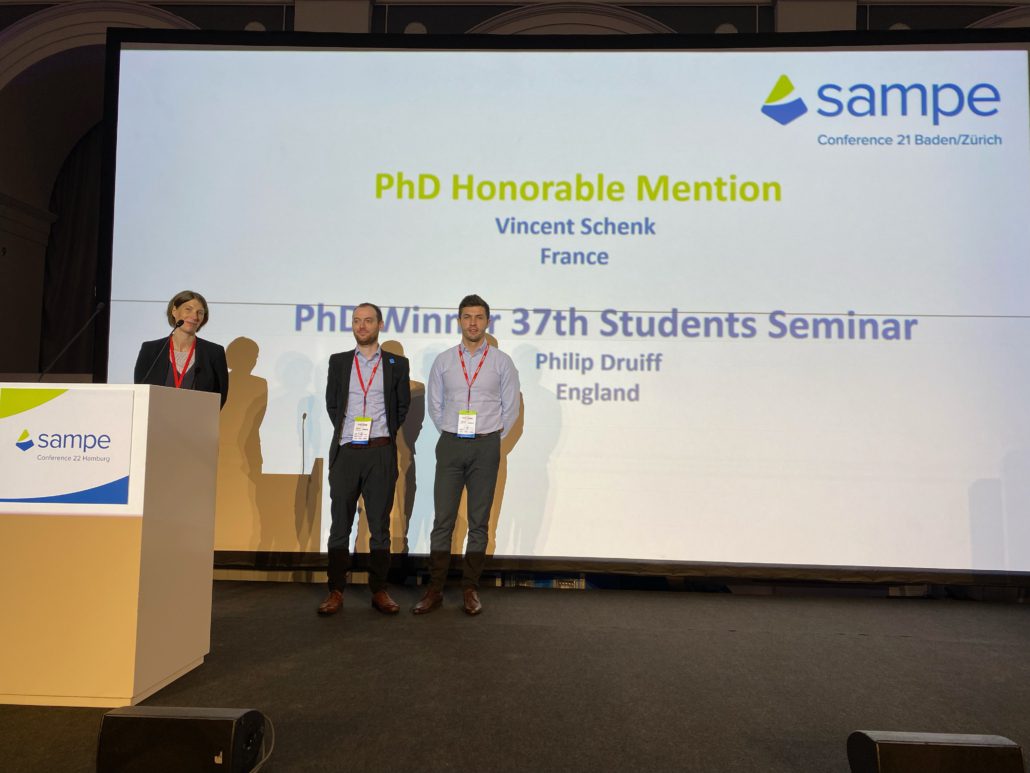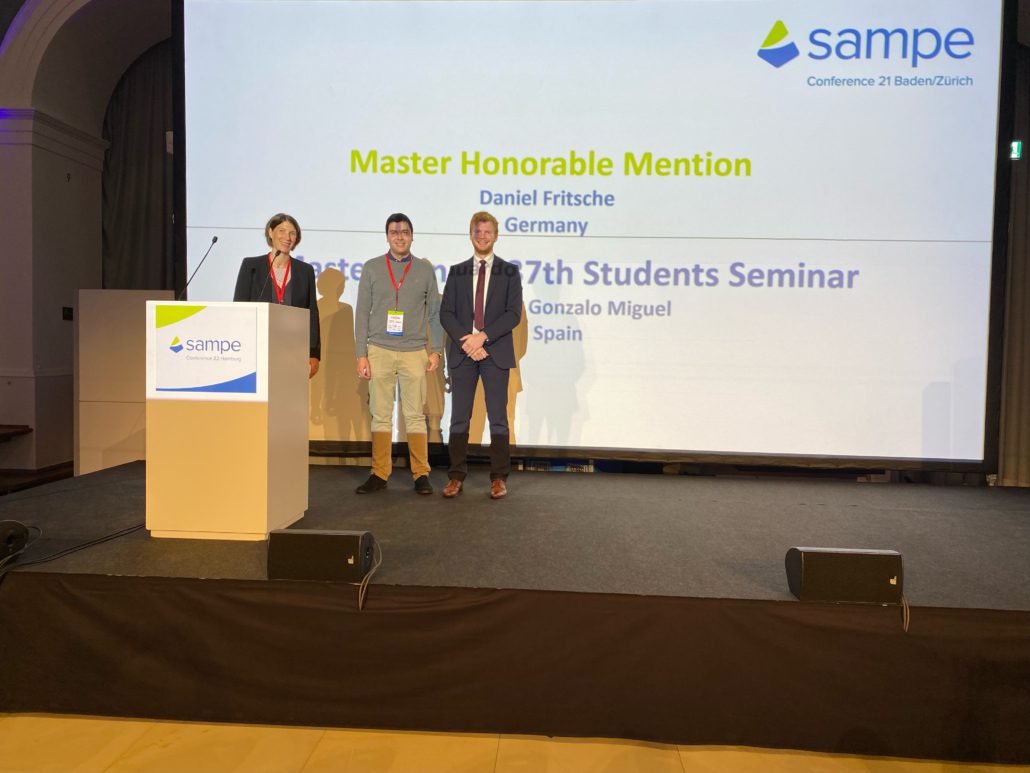Daniel C. Fritsche (Master Honorable mention, IKV, Germany), Eduardo Gonzalo Miguel (Master winner, University Carlos III, Spain / Portugal), Vincent Schenk (PhD honorable mention, Université Toulouse III Paul Sabatier, France), and Philip Druiff (PhD winner, University of Bristol, UK) are the proud winners of the 37th Students Seminar 2022. This annual Seminar was held at the SAMPE Europe 2022 Conference in Hamburg, Germany. 13 selected students from 7 countries were invited and presented their thesis to the International Experts Jury.
PhD winner Philip Druiff presented his study about “Machine learning based data-driven automated fibre placement.” The quality of the components manufactured by Automated Fibre Placement is dependent on multiple process parameters and their interactions. However, these relationships are often complex and interdependent. In order to investigate these relationships, data was captured continuously during AFP layup. A number of process parameters, including compaction force, surface temperature and lay-up speed, were measured continuously and were used to train and deploy machine learning models.
Eduardo Gonzalo Miguel was the best Master with his presentation “Thermal residual stress induced at cryogenic temperatures in composite materials for lh2 storage tank applications.” In this project, a numerical and an analytical model were developed to identify and validate the trends and the order of magnitude of these thermal residual stresses when brought under cryogenic conditions (-253ºC). An extrapolation of thermomechanical properties for the 8552/AS4 laminate was used to introduce them into the numerical models due to the lack of experimental data. The main purpose of this extrapolation was to estimate the thermomechanical of composite materials at very low temperatures.
Because of a close call a honorable Mention was given in each category.
PhD Vincent Schenk presented “Vitrimer composites for aeronautics.” Herein, he developed a promising high-performance epoxy vitrimer with a high glass transition temperature for aeronautics applications and compatible with conventional composite manufacturing processes. The capacity of this vitrimer to fulfil all processing specifications such as viscosity, reactivity and gel time was verified. Afterwards, carbon fibre-free vitrimers and vitrimer composites were manufactured using Resin Transfer Moulding (RTM) and compared to reference epoxy counterparts through different experiments to determine their physico-chemical and mechanical properties. The first results were promising for making reprocessable epoxy vitrimer composites.
Master Daniel C. Fritsche was awarded for his study “Investigation of the frequency influence on the fatigue behavior of short glass fiber reinforced plastics using quasi-isothermal tests.” This paper presents a novel test methodology for quasi-isothermal fatigue testing and the obtained results for a Polybutylene terephthalate with 30 % (weight content) glass fiber (PBT-GF30) at different frequencies.



